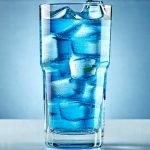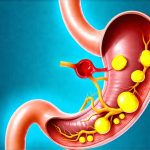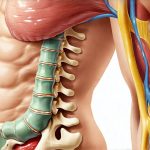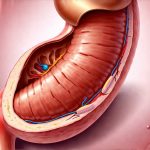Acid reflux is a common digestive issue affecting millions of people worldwide. It occurs when stomach acid flows back up into the esophagus, leading to heartburn and other uncomfortable symptoms. While many factors can contribute to acid reflux, including diet, lifestyle, and underlying medical conditions, alcohol consumption frequently plays a significant role for many individuals. Understanding the relationship between alcohol and acid reflux is crucial for managing symptoms and promoting digestive health.
This article will explore how different types of alcoholic beverages impact acid reflux, the mechanisms behind this effect, and practical strategies to minimize its occurrence when consuming alcohol. It’s important to remember that individual responses to alcohol can vary greatly, and consulting with a healthcare professional is always recommended if you experience persistent or severe symptoms.
The Connection Between Alcohol & Acid Reflux
Alcohol’s impact on acid reflux isn’t straightforward; it’s not just that you drink, but what you drink and how much. Different alcoholic beverages have varying effects due to their composition and how they interact with the digestive system. Generally speaking, alcohol relaxes the lower esophageal sphincter (LES), the muscular valve that prevents stomach acid from flowing back up into the esophagus. This relaxation allows for easier reflux.
Beyond relaxing the LES, some alcoholic drinks are inherently more acidic themselves or promote increased stomach acid production, exacerbating the problem. The consequences range from mild discomfort to significant disruption of daily life.
Alcohol Types and Their Effects
The type of alcohol consumed significantly influences its effect on acid reflux. Highly carbonated beverages, like beer and champagne, can increase pressure in the stomach, pushing the LES open more easily. Drinks with higher alcohol content tend to have a stronger relaxing effect on the LES. Wine, especially red wine, often contains compounds that can irritate the esophagus or contribute to increased acidity. Spirits (vodka, gin, whiskey) may be less directly acidic but still cause LES relaxation and potentially increase stomach acid secretion depending on how they are consumed – mixing with sugary drinks further complicates things.
How Alcohol Relaxes the Lower Esophageal Sphincter
The lower esophageal sphincter is normally tightly closed, providing a barrier between the stomach and esophagus. Alcohol interferes with this function through several mechanisms. It directly impacts the smooth muscle of the LES, causing it to relax. This relaxation isn’t just temporary; frequent alcohol consumption can potentially weaken the LES over time, making individuals more susceptible to chronic acid reflux. The degree of relaxation depends on the quantity and concentration of alcohol consumed, as well as individual factors like body weight and metabolism.
Alcohol’s Influence on Stomach Acid Production
While relaxing the LES is a major contributor, alcohol also impacts stomach acid production in complex ways. Some studies suggest that alcohol can initially stimulate gastric acid secretion, leading to more acidic contents available for reflux. However, prolonged or excessive alcohol use might eventually reduce overall digestive function, including acid production – paradoxically potentially worsening symptoms due to impaired digestion. This makes the relationship between alcohol and stomach acidity nuanced and dependent on consumption patterns.
Minimizing Reflux When Consuming Alcohol
Despite these potential issues, many people still enjoy alcoholic beverages. Strategies can help minimize the risk of triggering acid reflux. First, moderation is key – limiting the amount consumed reduces the overall impact on the LES. Avoiding carbonated drinks and highly acidic wines (like red wine) can also be beneficial. Drinking water alongside alcohol helps dilute stomach contents and potentially reduce irritation. Finally, avoiding consuming alcohol close to bedtime allows for more time for digestion before lying down, reducing the risk of nighttime reflux.


















